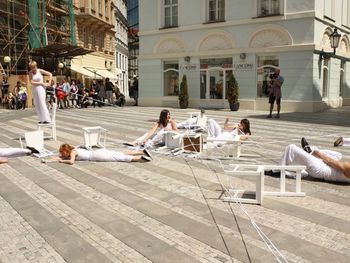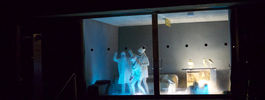

Poland » Makers
The Wedding Which was Not
Theatre is of particular importance in Poland. Since King Stanislaus Augustus appointed the His Majesty’s National Actors group 250 years ago, Poles have regarded theatre as a public institution that influences social and national awareness. As Americans await the Great Novel that will describe their fate, so the Poles look out for the Great Dramas - and they have had some. Amongst them there is 'The Wedding' by Stanislaw Wyspiański, which was written in 1901 and describes the marriage between a Galician peasant and a representative of the Krakow intelligentsia. The peasantry and the intelligentsia, two social groups unable to unite, meet at the wedding and confront their prejudices and superstitions. This is one of the most important and most frequently performed plays in the Polish repertoire, starkly describing Polish weaknesses and complexes. The paradox is that the author, while describing the wedding reception, does not mention, even once, what the wedding table looks like and what is served during the reception. Yet in culinary terms rustic weddings are, even up to the present day, a great theatrum culinae, a show of social aspirations, the hope for a better life. Professor Anna Królikiewicz from the Academy of Fine Arts in Gdansk takes up the challenge of reconstructing this gastronomic universe. Based on local Galician products, and after studying period sources, Królikiewicz will present the sensual, flavored vision of a Polish wedding a hundred years ago, which the viewer will join when it is already in full swing. The band is still playing the tunes, but the party is winding down. Remainders of the feast are still on the tables, and the wedding guests are still tipsy, even intoxicated. The smell of alcohol fills the whole room. “Were Chopin still alive, I think, he would drink”, says the hero of Wyspiański’s play, who is called Nose and whose character was inspired by Stanisław Przybyszewski, a modernist Polish writer who was famous throughout Europe. National discussions unfold in an atmosphere of decadence, drunken hallucinations and escape from political realism.









